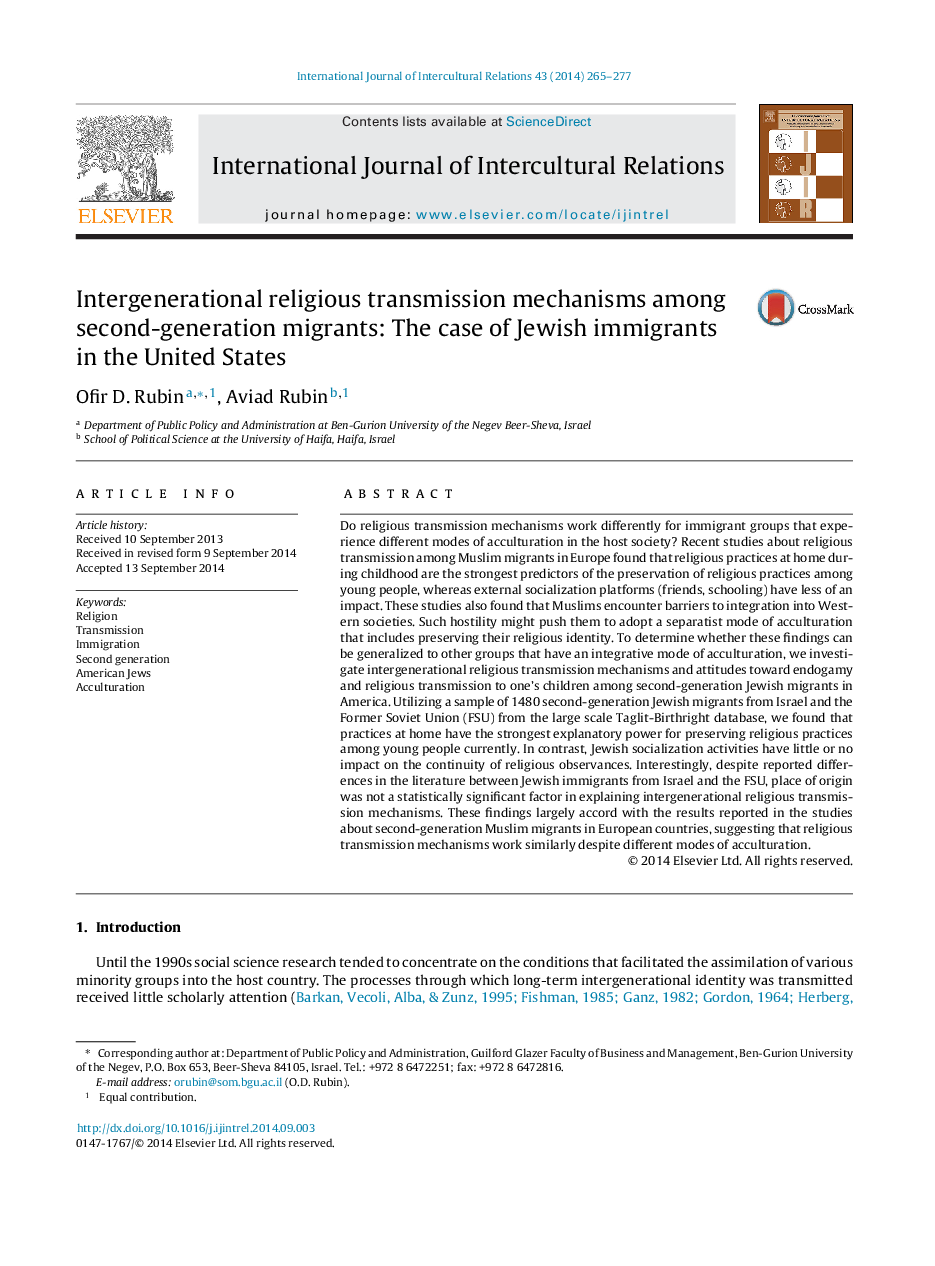| کد مقاله | کد نشریه | سال انتشار | مقاله انگلیسی | نسخه تمام متن |
|---|---|---|---|---|
| 947065 | 1475747 | 2014 | 13 صفحه PDF | دانلود رایگان |
Do religious transmission mechanisms work differently for immigrant groups that experience different modes of acculturation in the host society? Recent studies about religious transmission among Muslim migrants in Europe found that religious practices at home during childhood are the strongest predictors of the preservation of religious practices among young people, whereas external socialization platforms (friends, schooling) have less of an impact. These studies also found that Muslims encounter barriers to integration into Western societies. Such hostility might push them to adopt a separatist mode of acculturation that includes preserving their religious identity. To determine whether these findings can be generalized to other groups that have an integrative mode of acculturation, we investigate intergenerational religious transmission mechanisms and attitudes toward endogamy and religious transmission to one's children among second-generation Jewish migrants in America. Utilizing a sample of 1480 second-generation Jewish migrants from Israel and the Former Soviet Union (FSU) from the large scale Taglit-Birthright database, we found that practices at home have the strongest explanatory power for preserving religious practices among young people currently. In contrast, Jewish socialization activities have little or no impact on the continuity of religious observances. Interestingly, despite reported differences in the literature between Jewish immigrants from Israel and the FSU, place of origin was not a statistically significant factor in explaining intergenerational religious transmission mechanisms. These findings largely accord with the results reported in the studies about second-generation Muslim migrants in European countries, suggesting that religious transmission mechanisms work similarly despite different modes of acculturation.
Journal: International Journal of Intercultural Relations - Volume 43, Part B, November 2014, Pages 265–277
